Garneau D1 Review
As part of our longstanding partnership with Garneau we were fortunate enough to spend the harsh winter months riding a complete fleet of Garneau's first ever disc brake equipped road bike: the Garneau D1. The end result of that process is that we're adding some D1's to our permanent collection of team race bikes but before we start putting those new To Be Determined x Garneau bikes to work in racing we wanted to compile our thoughts on the D1 from our time training, commuting, and exploring with the demo fleet.
Two Big Questions about the Garneau D1 by Clay Parker Jones
The first question I’ve been getting from the guys on the team not in the demo program: “So is it a race bike?”
We’ve been conditioned over the last several years to think that disc-brake equipped road bikes come in two flavors: endurance bike cruisers or made-for-Classics crushers. To wit, have a look at the geometry charts for Trek’s Domane and Specialized’s Roubaix. Both have stretched wheelbases hovering around 100cm. Both share a tall stack height relative to their reach. Both have a decidedly old-school bottom-bracket drop (more than 7.5cm – you won’t see that on many carbon racing bikes). These design strategies help the bike track straight, turn a bit slower than a typical race bike, and de-prioritize the ability to pedal through corners.
Want to read more about geometry and bike design history? Check out this article. It’s awesome.
On paper, Garneau’s D1 looks nothing like a Classics bike. It’s crit-ready. The bottom bracket drops only 6.9cm below the hub axis – that’s even less drop than the A1 or R1 from Garneau’s lineup. The wheelbase is only a few millimeters longer than a typical racing machine, clocking in at 984.7mm on a Medium bike.
On the road, it feels mostly similar to the R1 that I rode all last season. I still have to pay attention to toe overlap in the tightest corners. It felt fast, fluid and grounded descending Bear Mountain. It was ready to go when our team ride turned into a leadout into a state line sprint.
Which makes sense. The bike is ready to be competitive out of the box from Garneau, with a 3T cockpit and your choice of a full Ultegra group in mechanical or electronic form. The brakes are flat mount, the steerer tube is tapered, and the frame accepts 386EVO bottom brackets. The Di2 bikes come with a slightly better wheelset, swapping Shimano’s RX31 wheelset for Easton EA90 SLs. The EA90s are nearly 300g lighter, and a millimeter wider, which are noticeable on the road. Swap in some true race wheels (maybe some ENVE AR 4.5s?) and the bike is in fighting shape.
The second question: “So...how do you like disc brakes?”
I’ll admit it: I wasn’t sold on discs at first. I’ve spent the past three cyclocross seasons on canti-equipped steel bikes, and I have a new, custom-painted Garneau A1 heading my way. Rim brakes look right on a bike. Discs are heavier, and require specialized tools and techniques to maintain. And rim brakes stop well enough anyway, right?
But in the past few weeks, I’ve come around. Discs are the right way to decelerate. I don’t know how to quantify this, but when scrubbing speed with disc brakes, you get a better sense of what’s happening between the bike, your body, and the road. Everyone that rides discs throws around phrases like “better modulation,” but I don’t think that’s quite what I’ve experienced. Instead, it’s a new depth of sensation that makes fast cornering more fun.
In sum, this is a bike that can get you through everything a full season of racing can throw at you (while giving road-season life to your cross wheels, and vice-versa!), and I can’t wait to see it on the road in TBD colors.
East Coast Winter Riding with the Garneau D1 by Ted Teyber
Its called climate change because the globe is not only getting warmer, but weather events in general are becoming more extreme. For the American Northeast, this was exhibited with serious cold snaps throughout the winter of 2017-18 prohibiting even the thought of outdoor riding, buffered by more moderate temperatures when riding outside was truly enjoyable. The problem is that it is really hard to know from one day to the next what is in store.
So a bike that can do all kinds of road riding, and some, is one less regrettable decision to make in the morning on top of kit, gloves, shoe covers, parka, electric warmers, etc.,
Garneau’s D1 is just that, it's a race road bike, but its wheel base and fork rake are also stable over icey and debris filled roads. Its a race road bike, but the disc brakes provide some peace of mind and safety in traffic. Its a race road bike, but the tire clearance allows you to ride light trails.
The financial hurdles to going disc are not insignificant. For those who have been racing for a few seasons, the corner of training and racing wheels in your Manhattan apartment instantly becomes obsolete. The silver lining is that the need for a plethora of wheels for varying conditions and rides is no longer required with disc wheels - braking power is not impacted by road moisture on the breaking surface, and furthermore you will not scour your carbon race wheels should you have to touch the breaks - whether thats in a rainy park race or to avoid an absent minded taxi patron.
Pro-teams are going to road disc for reasons that are probably different than the domestic-elite NYC bike racer. Europe’s mountain passes and the eye watering descents therefrom are not in our annual racing circuit. While hearing Buckminster Fuller whisper ‘structured obsolescence’ into my ear with respect to companies fundamentally changing the status quo platform on which bikes rest, if you are looking to get your first race bike, or want the proverbial “1 bike”, a disc bike, of which Garneau’s D-1 perfectly encapsulates, is absolutely the way to go.
New is always weird at first, but is it here to stay or a marketing fueled fad?
D1 Feelings BY Cullen MacDonald
I like gear. What brand, from what year, how do you adjust it, what tools do you need? These are the questions that keep my wallet empty and my interest piqued. Once you dig deep into any gear based hobby, you start to develop opinions that could be considered Good, or Right. My particular habit is to find the weirdest but still Good parts and use them for every day things: I daily drove a 1973 MGB for 3 years; I played a 1979 Sears guitar through a 60s Ampeg bass head on tour; and last year I did the bike racing on a 1993 Colnago Master Olympic steel frame.
Even though disc road bikes have been a thing for a few years and even though a few pro teams have been rolling out disc bikes for use in the world tour, disc road bikes are still considered weird. All this to say: I was thrilled to try out the new Garneau D1 specifically because I like weird gear.
I picked up my demo D1 just before Christmas, chucked it on my bike rack and headed to my hometown of Richmond, VA for the holidays. Going home to see friends and family is always a lot so its nice to have an excuse to get out of doing chores for your mom for a few hours. Heading off on my first ride on the D1, I had a plan to focus on really getting to know the bike. Riding through historic neighborhoods and along the beautiful James River, the new bike I was meant to review melted away from me. It wasn't until I found myself hammering up a quick minute climb at the end of my ride that I remembered I was riding a bike I had barely touched. Hmm.
The second day, I went out for a shorter loop by the river and had a plan to fully test and photograph the bike. I wanted to make notes of where it felt different and where it excelled. This was, after all, a new weird disc road bike, right? Well two hours of hammering along the steep rolling hills and tight turns of Riverside Dr. in the Westover Hills neighborhood and I had again completely forgotten my review plans.
The last day I was “back home” I decided to go on a short little ride over to the Church Hill district, home of the infamous Libby Hill where Peter Sagan made his WC winning move. It’s a neighborhood I’ve spent tons of time in, but this would be my first time throwing a bike up the cobbled climb. Flying up this beautiful (and brutal) hill, I finally remembered I was meant to be reviewing this new weird bike. How could I have forgotten four days in a row to take notes of this weird disc race bike?
Everything started to click for me: Here I am, a very normal bike rider, riding a very normal bike, up the exact same hill remembered by thousands of cycling fans.
The bike isn’t weird, this sport is.
I crested the top of Libby Hill, panting, and a little teary eyed. Looking down from where the TV cameras were mounted in 2015, I arrive at my final thoughts: If you can sift through all the bullshit and pretentious gear opinions, you’re left with one realization: all bikes are good. The Garneau D1 happens to be a particularly good one.


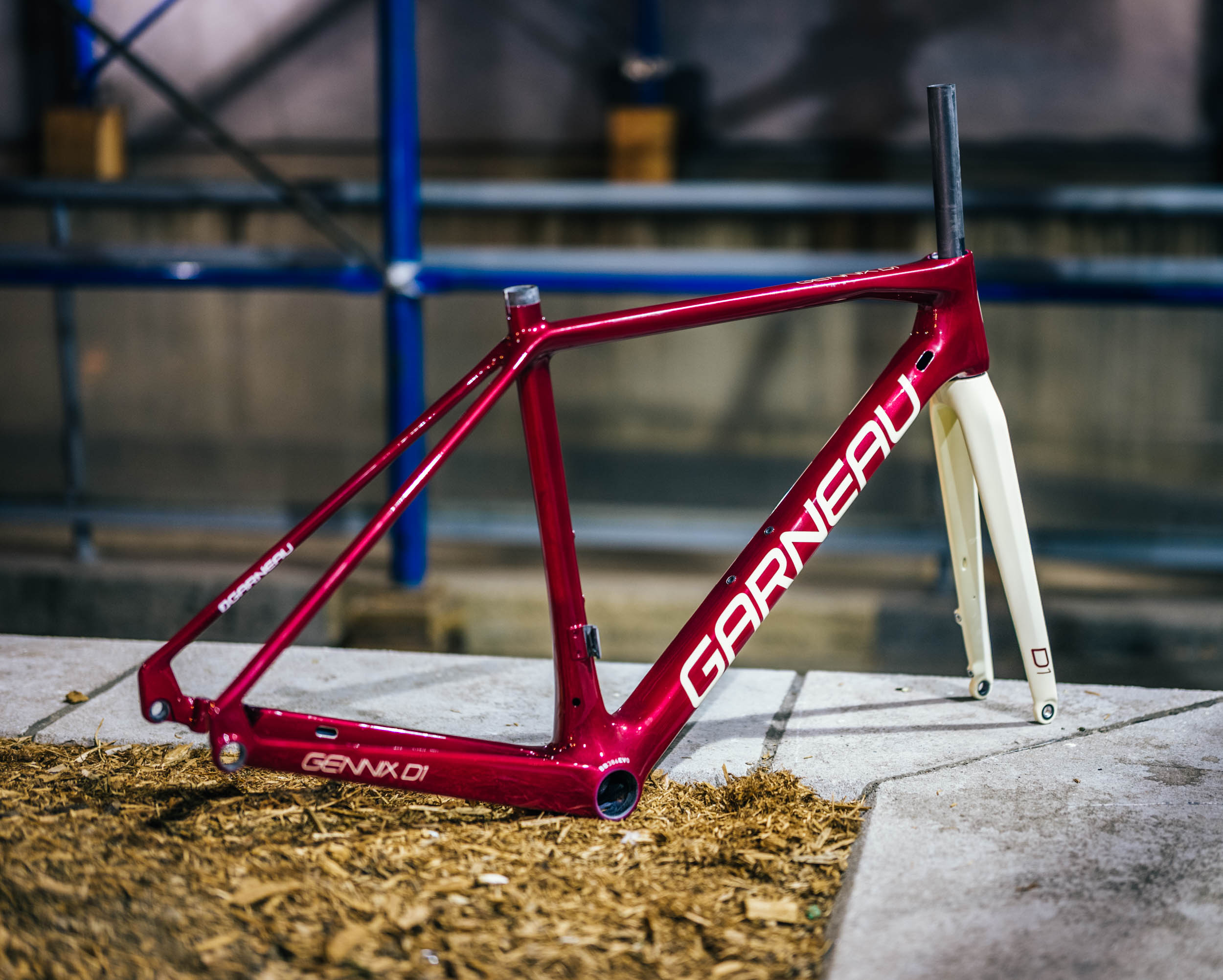


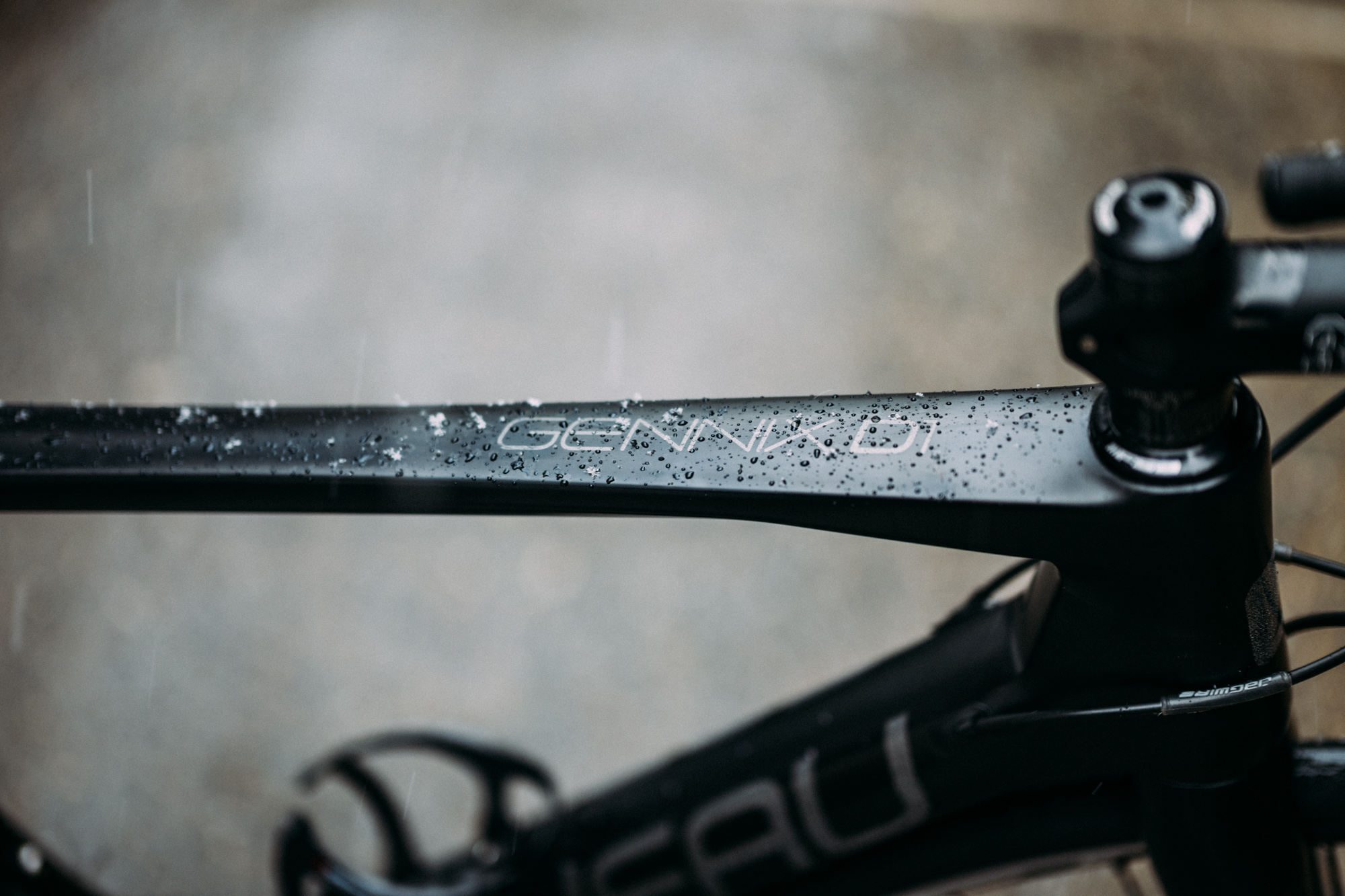
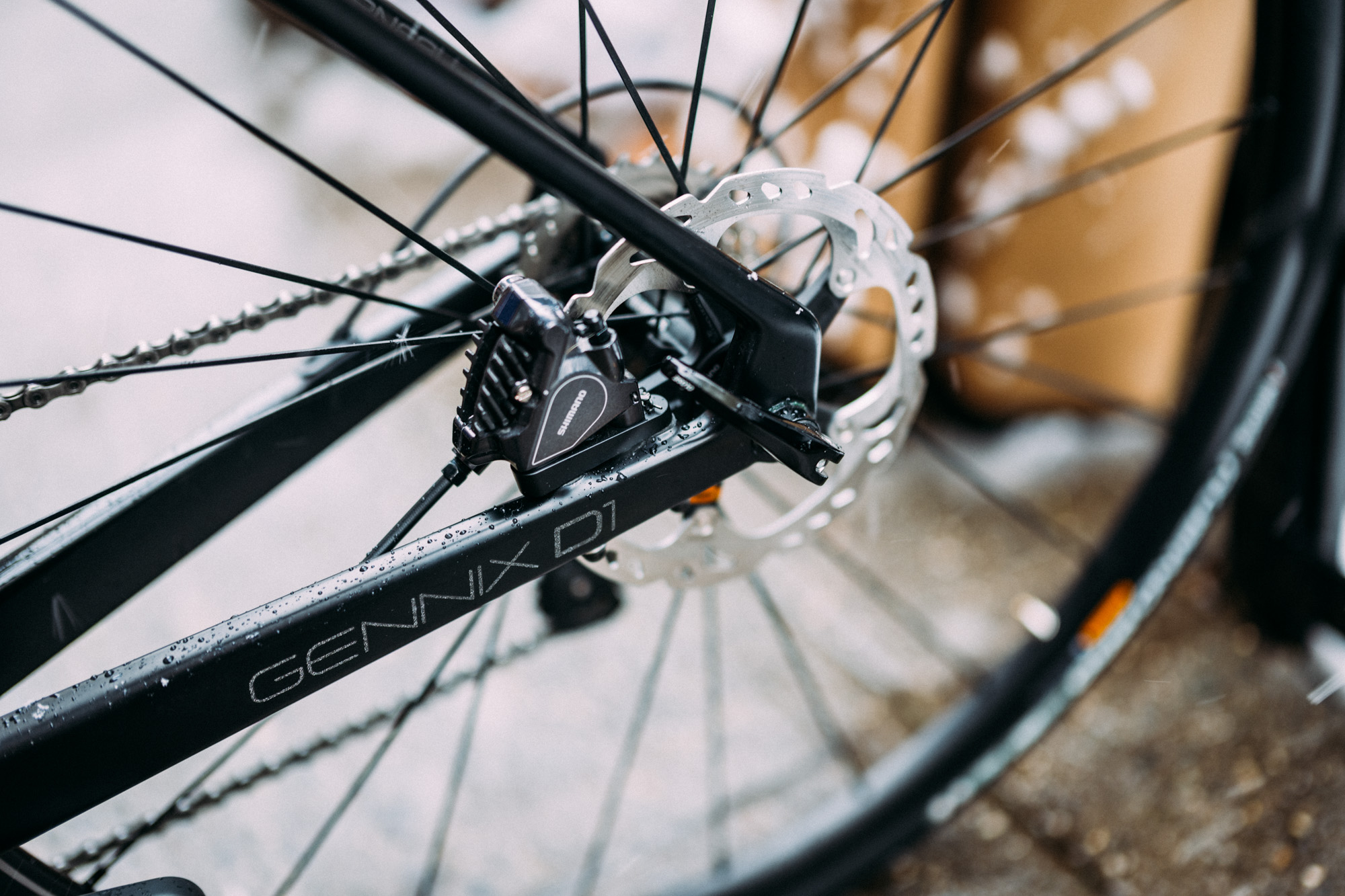
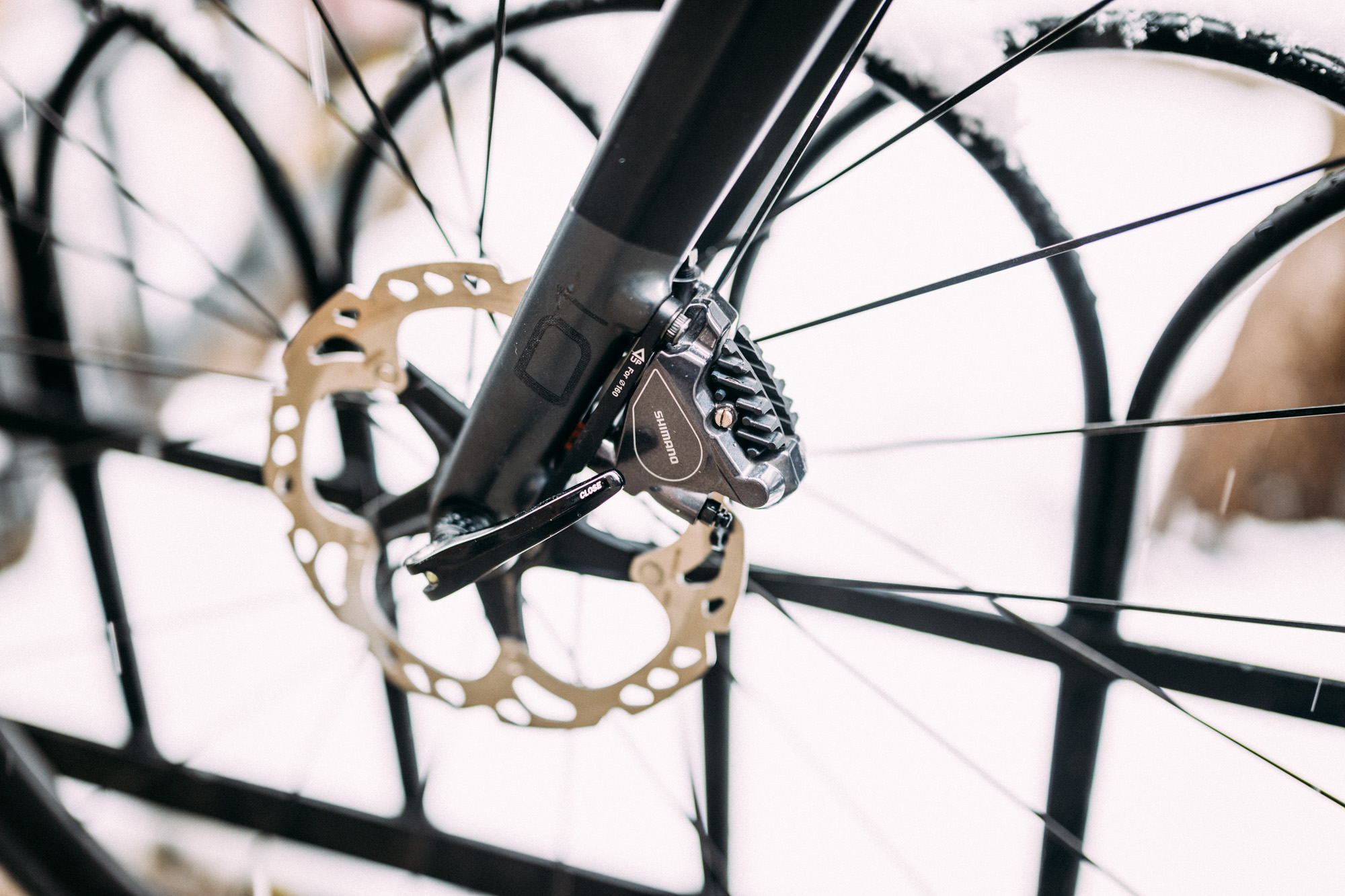

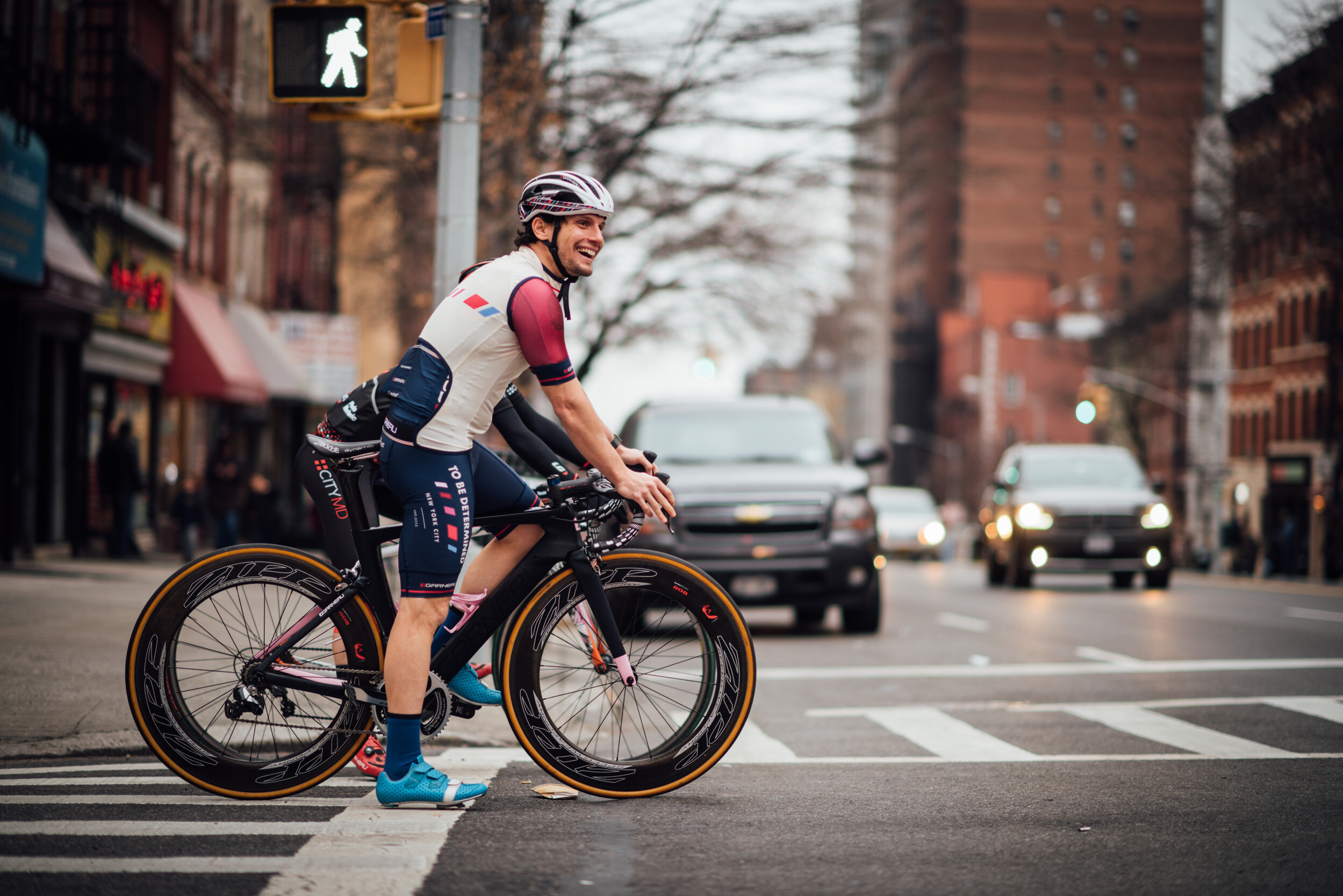

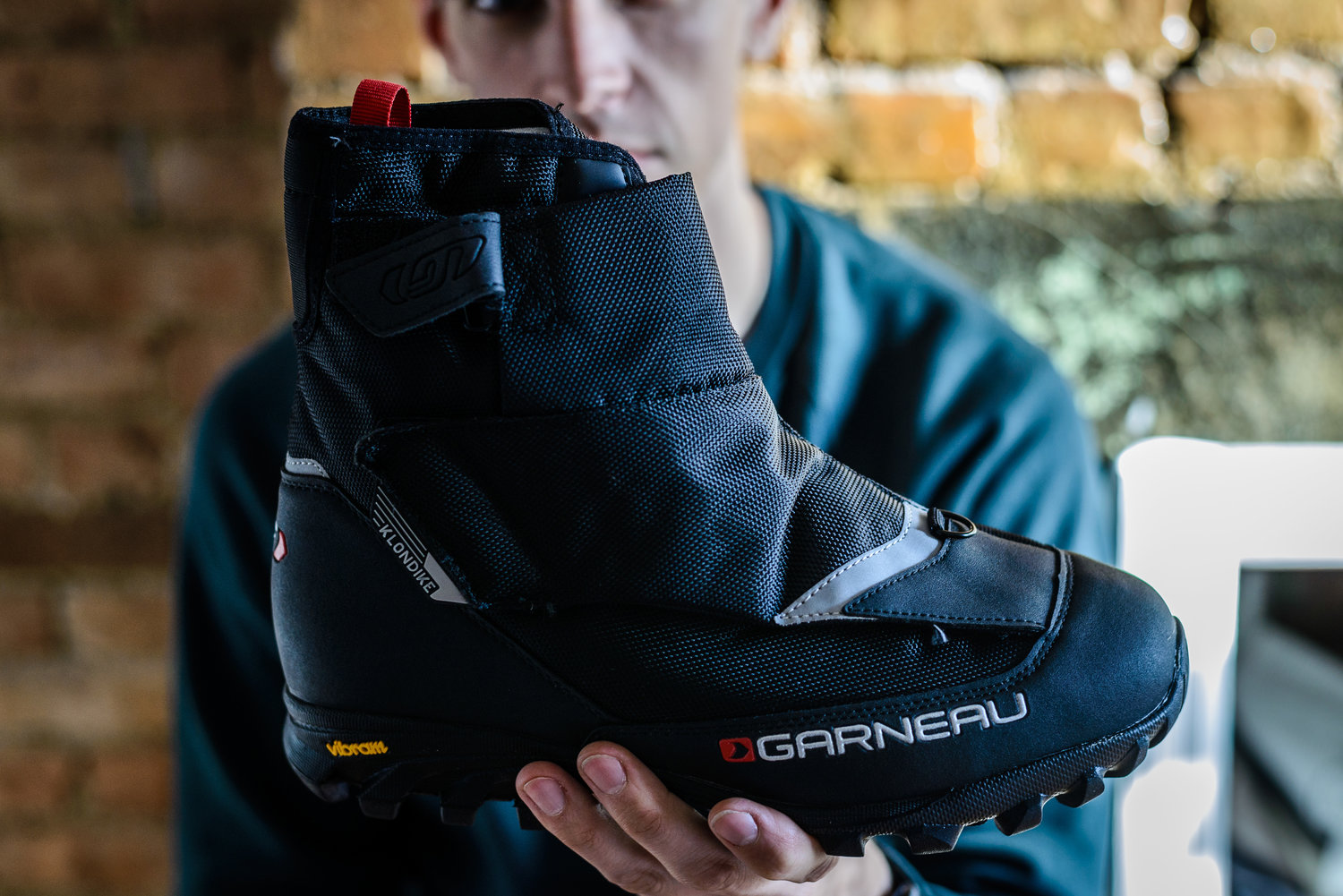

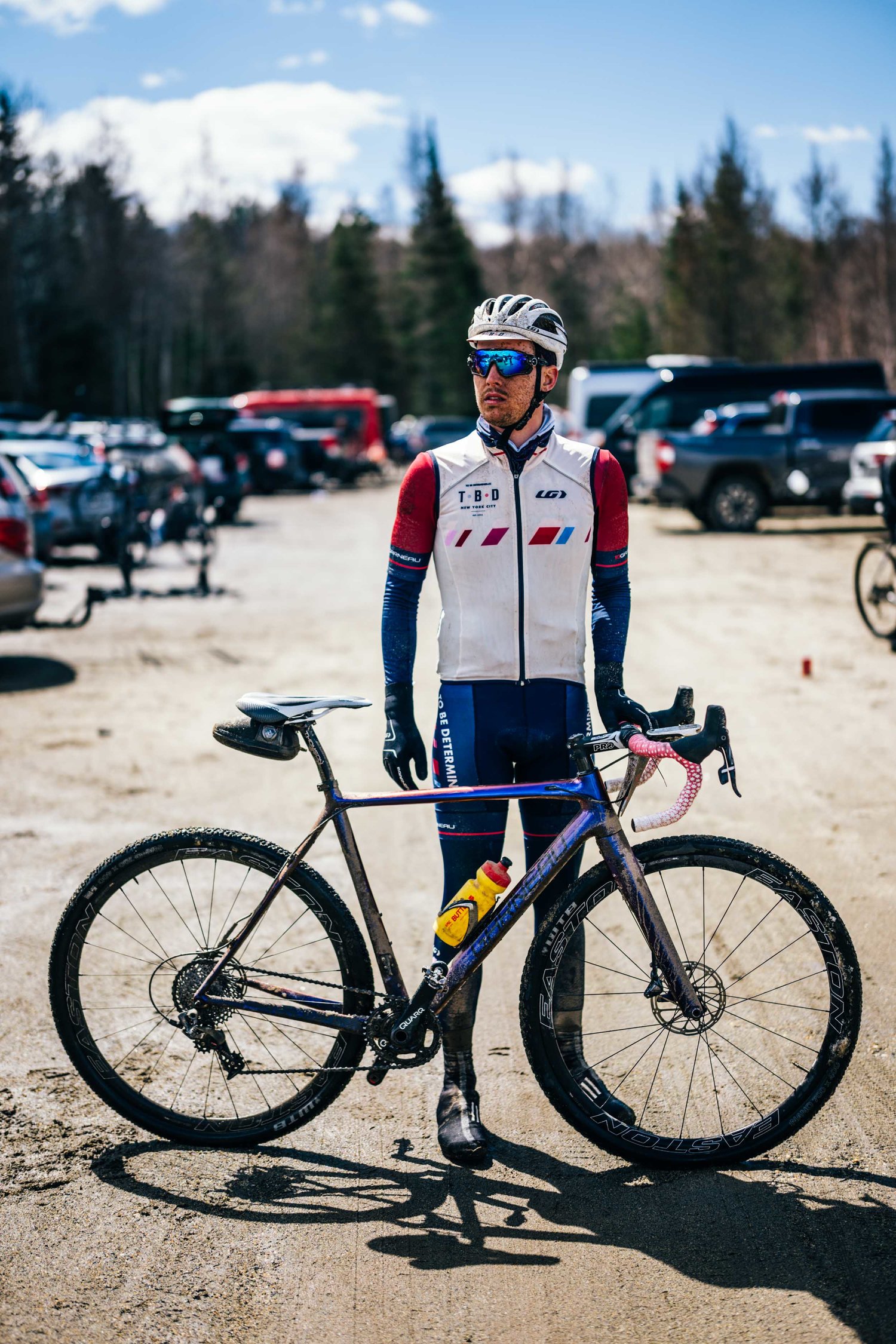
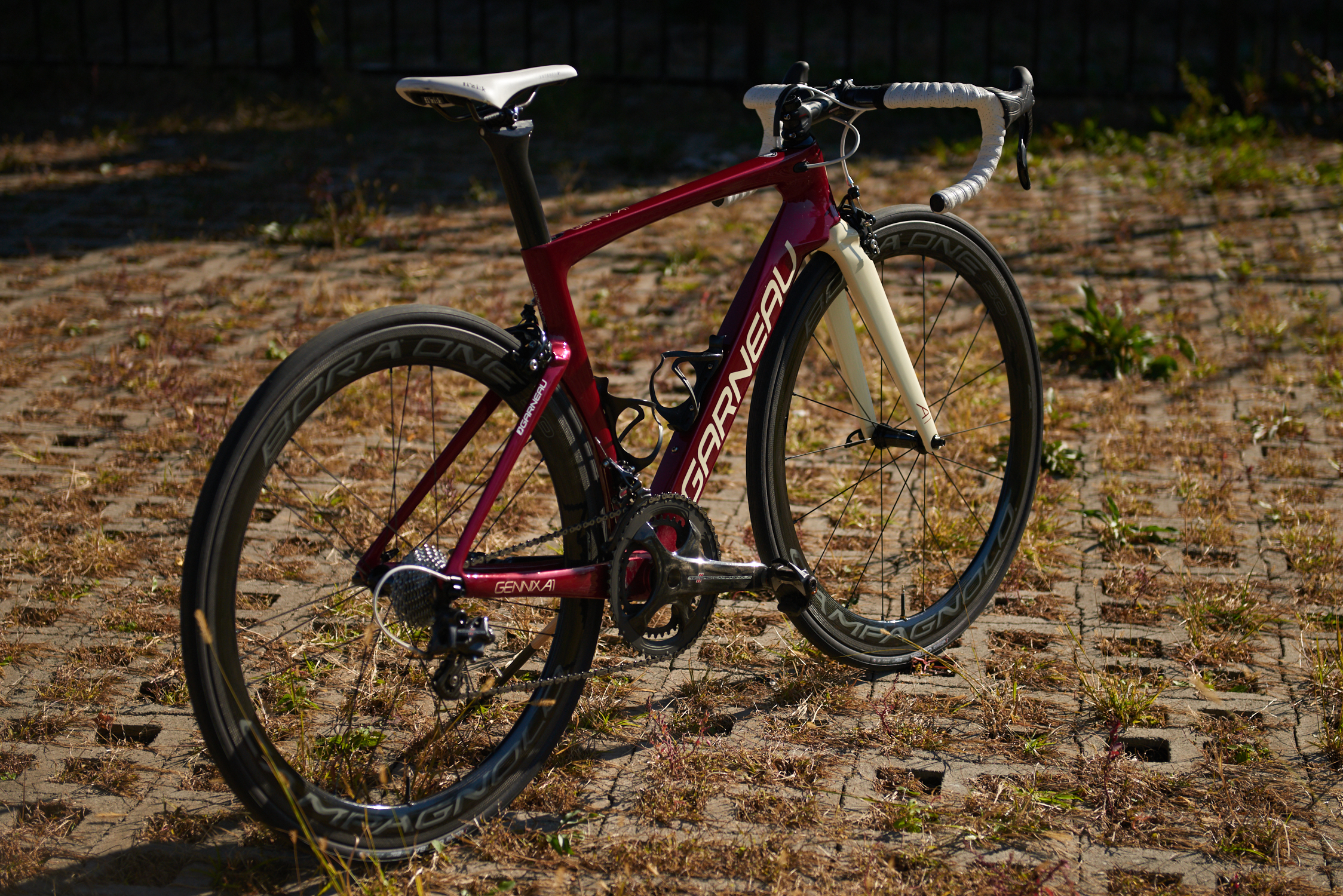
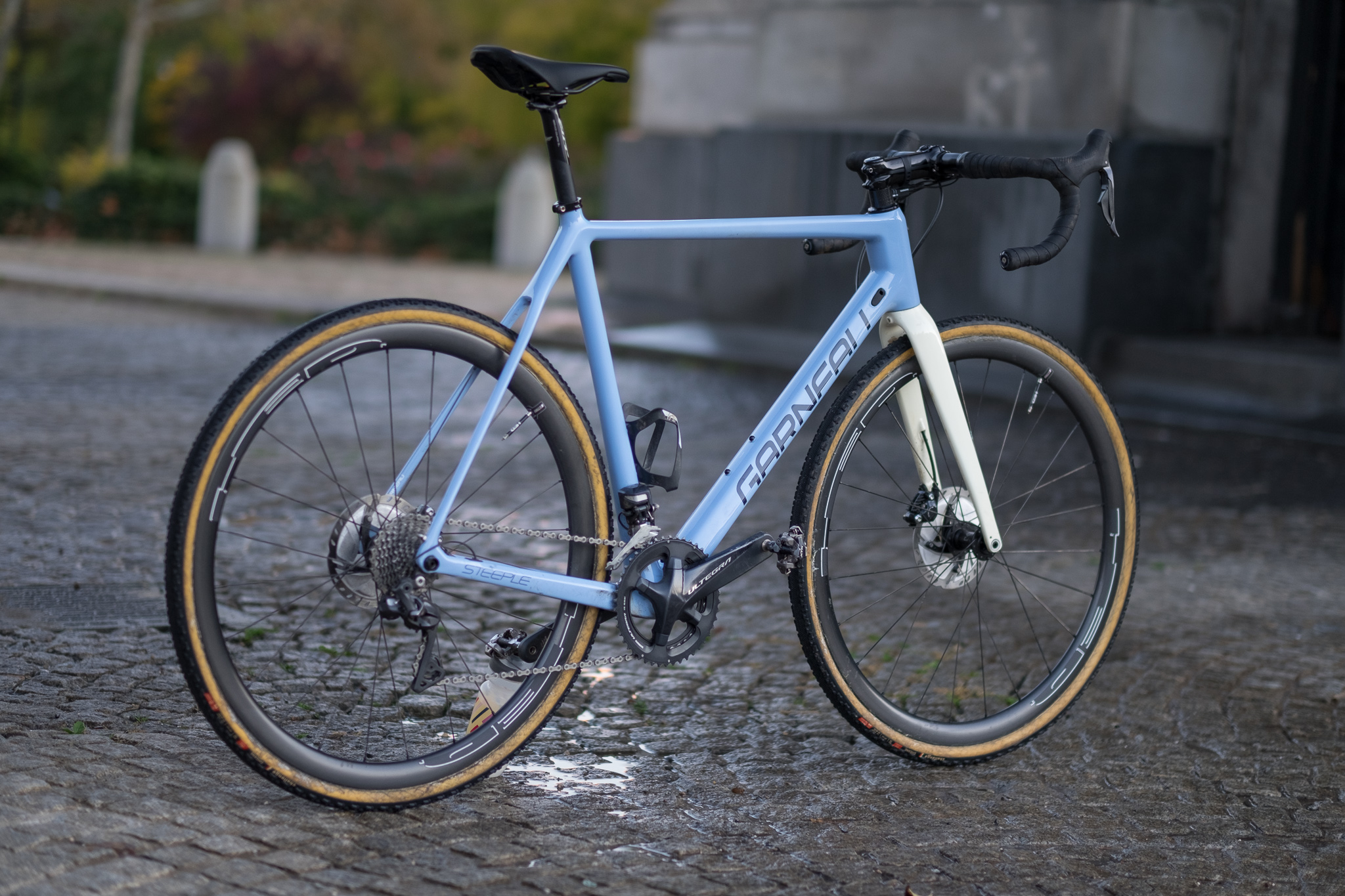
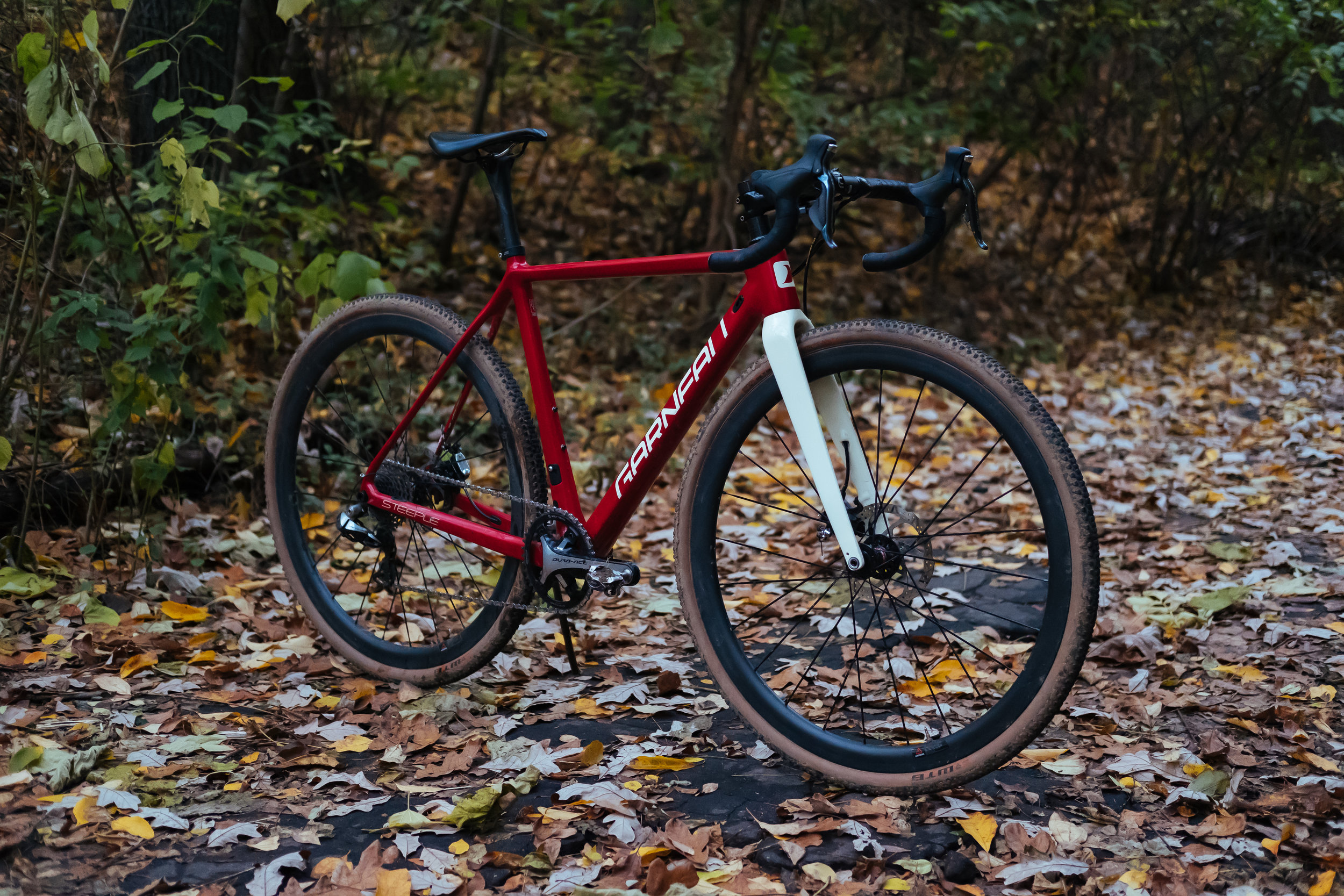

Earlier this year we were one of the first teams to put Garneau’s newly launched Groad collection through its paces at Rasputitsa. Some of our initial impressions from the dirt roads of Vemont and New Hampshire follow.